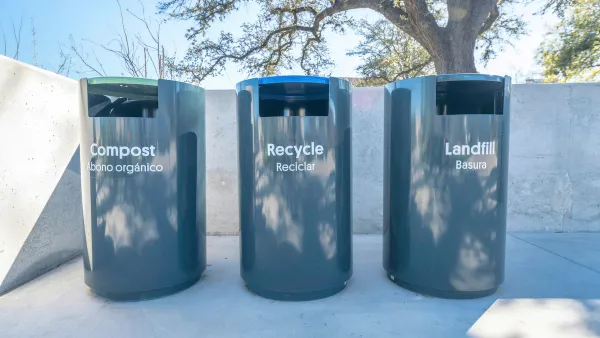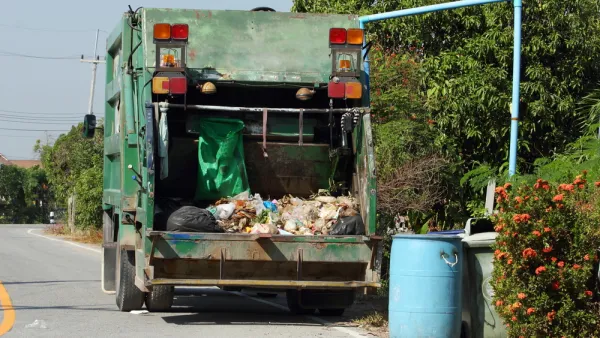Because city residents generate four times as much trash as rural residents, the rapid growth of the world's cities is leading to the rapid growth of the world's garbage. A new study examines future trash troubles and potential solutions.
"Global waste has bulged 10-fold in the last century," notes Ben Schiller. "And by 2025, it's set to double from where it is today, according to a study in the journal Nature. The chief reason: newly rich cities of the developing world."
"'As a country becomes richer, the composition of its waste changes. With more money comes more packaging, imports, electronic waste, and broken toys and appliances,' says the article by Daniel Hoornweg, Perinaz Bhada-Tata and Chris Kennedy. In turn, that leads to environmental problems, like toxic leakages from landfills, and plastic clogging oceans and rivers."
How can we slow, and eventually stop, the growth of the world's waste? "They recommend the rest of the world take a cue from San Francisco's book (it has a zero-waste policy), and introduce disposal fees that put a price on waste generation," explains Schiller. "'Increased education, equality, and targeted economic development' could cut population growth, limiting waste naturally, they add."
FULL STORY: By 2100, We'll Be Living In A World Of Garbage

Analysis: Cybertruck Fatality Rate Far Exceeds That of Ford Pinto
The Tesla Cybertruck was recalled seven times last year.

National Parks Layoffs Will Cause Communities to Lose Billions
Thousands of essential park workers were laid off this week, just before the busy spring break season.

Retro-silient?: America’s First “Eco-burb,” The Woodlands Turns 50
A master-planned community north of Houston offers lessons on green infrastructure and resilient design, but falls short of its founder’s lofty affordability and walkability goals.

Test News Post 1
This is a summary

Analysis: Cybertruck Fatality Rate Far Exceeds That of Ford Pinto
The Tesla Cybertruck was recalled seven times last year.

Test News Headline 46
Test for the image on the front page.
Urban Design for Planners 1: Software Tools
This six-course series explores essential urban design concepts using open source software and equips planners with the tools they need to participate fully in the urban design process.
Planning for Universal Design
Learn the tools for implementing Universal Design in planning regulations.
EMC Planning Group, Inc.
Planetizen
Planetizen
Mpact (formerly Rail~Volution)
Great Falls Development Authority, Inc.
HUDs Office of Policy Development and Research
NYU Wagner Graduate School of Public Service



























